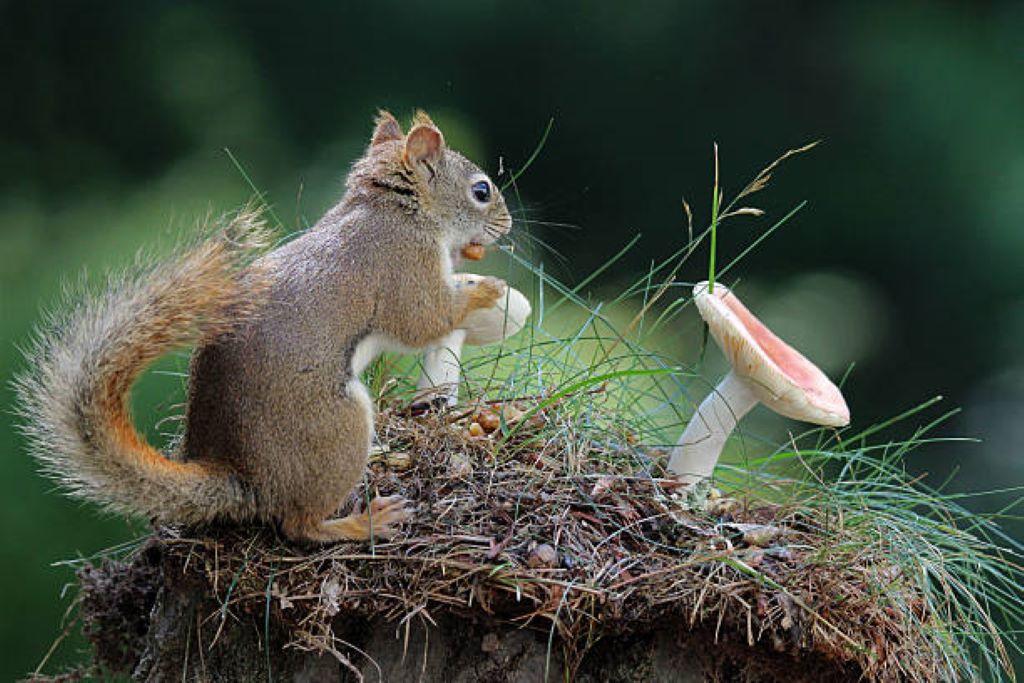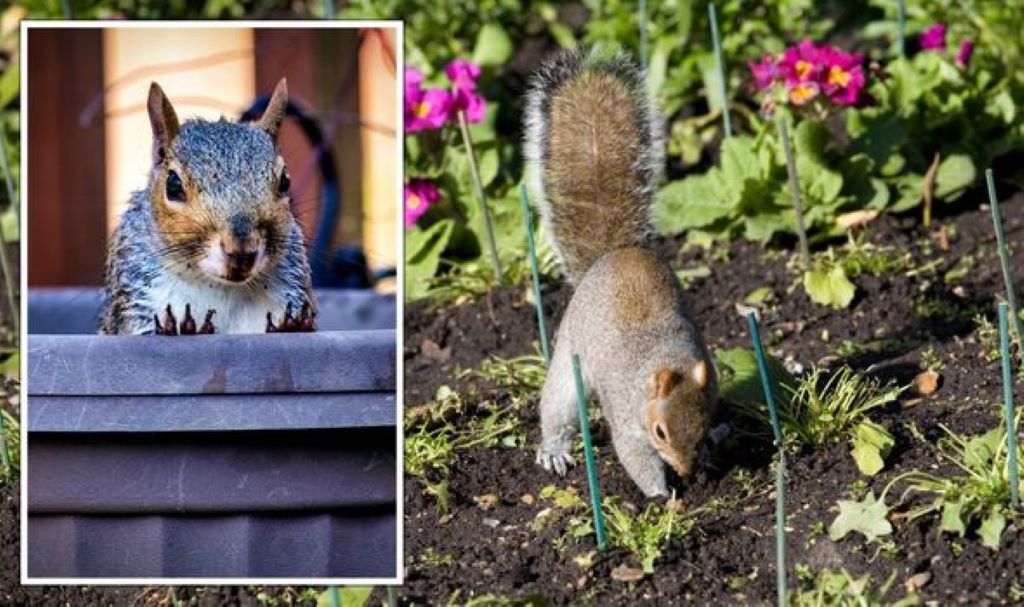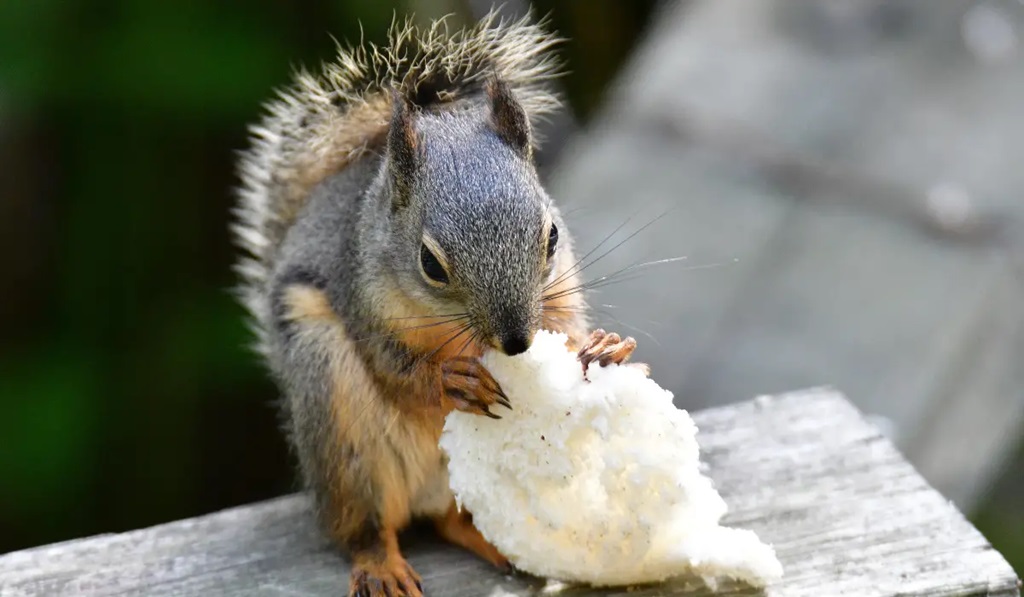To deter squirrels, use repellents and barriers such as wire mesh or fences. This will prevent them from accessing your property and causing damage to plants or structures. Squirrels can be a nuisance when they invade your property, causing havoc by digging up your garden, gnawing on structures, or stealing birdseed. If left unchecked, their constant presence can become frustrating and costly. Fortunately, there are effective ways to deter these furry critters and protect your property.
We will explore various methods that can be employed to keep squirrels at bay, without causing them harm. By implementing a combination of repellents and barriers, you can create an environment that discourages squirrels from wreaking havoc on your outdoor space. With these strategies in place, you can reclaim your property and enjoy a squirrel-free haven.
Identifying Squirrel Activity
Squirrels may appear cute and harmless, but when they invade your property, they can cause significant damage. Identifying signs of squirrel activity is the first step in effectively deterring them. Understanding squirrel behavior and recognizing the signs they leave behind, such as gnawed objects or nesting materials, is crucial. A common inquiry in dealing with squirrels is do squirrels eat bread? While squirrels might occasionally eat bread, it’s not a significant factor in managing their presence. By knowing their habits and what attracts them, you can take the necessary measures to protect your home and garden. For more detailed strategies and insights on dealing with these critters, https://www.themadething.com/ offers a comprehensive guide to help you tackle squirrel problems effectively.
Recognizing Signs Of Squirrel Presence
When it comes to identifying squirrel activity, various signs can indicate their presence:
- Squirrel nests: Keep an eye out for nests made of twigs and leaves, typically found in trees or attic spaces. These nests serve as shelter and breeding grounds for squirrels.
- Damaged trees: Squirrels are known to chew on tree bark and branches. Look for signs of gnawed or missing bark, as well as broken or stripped branches.
- Scattered food stores: Squirrels are known for collecting and stashing food, especially during the colder months. If you notice scattered acorns, nuts, or seeds in your yard, squirrels may be responsible.
Understanding Squirrel Behavior
To effectively deter squirrels, it’s crucial to understand their behavior and motivations:
- Foraging habits: Squirrels are opportunistic eaters and will target garden vegetables, bird feeders, and even stored food in homes. They have a preference for nuts, acorns, and fruits.
- Active hours: Squirrels are diurnal creatures, most active during daylight hours. This information can help you determine the best time to observe and counter their activities.
- Territorial nature: Squirrels are territorial animals, defending their nesting sites fiercely. This is important to keep in mind when implementing deterrent strategies.
By recognizing these signs of squirrel presence and understanding their behavior, you can tailor your squirrel deterrent measures to effectively protect your property from their activities. Let’s delve into some practical methods and techniques to deter squirrels in our next section.
Natural Deterrents
To deter squirrels, employing natural deterrents such as pepper, vinegar, or predator urine can be effective. These scents and flavors repel squirrels from gardens and bird feeders, providing a non-harmful way to discourage their presence. Placing these deterrents strategically can help in keeping squirrels at bay.
Planting Squirrel-repelling Plants
One effective and natural way to deter squirrels from your garden is by planting squirrel-repelling plants. These plants are known for their strong scents and tastes that squirrels find unpleasant, thus deterring them from coming near.
Here are some plants that can help in keeping those pesky critters away:
Rosemary
Rosemary is a fragrant herb that is often used in cooking. However, its strong scent is not appreciated by squirrels. Planting rosemary around your garden can act as a natural squirrel repellent.
Mint
Mint is another herb with a strong scent that squirrels dislike. It is easy to grow and can be planted in pots or directly in your garden. Placing mint plants strategically can discourage squirrels from invading your vegetable beds or flower patches.
Daffodils
Daffodils are beautiful flowers that not only add color to your garden but also help keep squirrels at bay. Squirrels have an aversion to daffodils, making them an ideal plant to deter these furry intruders.
Using Natural Repellents
If you are looking for an extra layer of protection against squirrels, you can also consider using natural repellents. While planting squirrel-repelling plants can help, adding some additional deterrents can increase the effectiveness.
Here are a couple of natural repellents that can aid in squirrel control:
Spicy Sprays
Squirrels are not fond of spicy flavors. Create a homemade spicy spray by combining hot peppers, water, and a few drops of dish soap. Spray this mixture on areas where squirrels tend to be active, such as bird feeders or plant pots. The spicy smell will discourage squirrels from getting close.
Apple Cider Vinegar
Apple cider vinegar is another natural repellent that can help in deterring squirrels. Dilute apple cider vinegar with water and spray it around your garden. The strong odor from the vinegar will make squirrels think twice about venturing into your space.
| Plants | Natural Repellents |
| Rosemary | Spicy Sprays |
| Mint | Apple Cider Vinegar |
| Daffodils |
By combining squirrel-repelling plants with natural repellents, you can create a comprehensive and effective strategy to keep squirrels away from your garden. Implement these natural deterrents to protect your plants and enjoy the beauty of your garden without any unwanted visitors.
Physical Barriers
Physical barriers are an effective way to deter squirrels from invading your property and causing havoc. Implementing squirrel-proof fencing and protecting trees and birdfeeders are practical strategies to keep these agile critters at bay.
Implementing Squirrel-proof Fencing
Squirrel-proof fencing is a sturdy and reliable way to prevent these pesky creatures from digging under or climbing over barriers. It’s essential to choose fencing with small gaps or use metal mesh to prevent squirrels from squeezing through. Additionally, install a 30-degree overhang at the top of the fence to discourage them from climbing over.
Protecting Trees And Birdfeeders
Tree trunk guards are an effective method for protecting trees from the constant gnawing of squirrels. These guards can be made of metal or plastic and should be placed around the tree trunk to prevent squirrels from climbing. When it comes to birdfeeders, install baffles below and above the feeders to obstruct squirrels’ access. Ensuring that the baffles are positioned far enough from the ground will prevent the squirrels from leaping past the barrier.
Homemade Repellent Solutions
Looking to deter squirrels from your yard? Check out these homemade repellent solutions that are effective and easy to make. Keep those pesky critters away without using harmful chemicals.
Creating Diy Squirrel Deterring Sprays
One effective way to deter squirrels from your garden or property is by using homemade repellent sprays. These sprays are easy to make and can provide a natural and eco-friendly solution to your squirrel problem.
To create your squirrel deterring spray, start by combining one part water with one part white vinegar in a spray bottle. Shake the mixture well to ensure that the two ingredients are properly blended. The strong odor of the vinegar will help deter squirrels from entering your garden and damaging your plants.
You can also add a few drops of essential oils, such as peppermint, lavender, or eucalyptus, to the vinegar and water mixture to enhance its effectiveness. Squirrels dislike the strong scents of these oils and will be less likely to venture near the treated areas.
When applying the spray, focus on areas that squirrels commonly visit or target, such as the base of trees, bird feeders, or vegetable gardens. Make sure to reapply the spray after rain or heavy watering to maintain its potency. However, avoid spraying directly on edible plants or areas where pets may come into contact with the mixture.
Using Spices And Scents To Repel Squirrels
In addition to homemade sprays, you can also utilize spices and scents to repel squirrels. Squirrels have a strong sense of smell and are often deterred by certain spices and strong scents.
One effective spice to use is cayenne pepper. Squirrels find the spiciness of cayenne pepper overwhelming, making it an excellent deterrent. Sprinkle cayenne pepper powder around your garden, flower beds, or any areas where you want to keep squirrels away.
Mothballs are another scent that squirrels dislike. Placing mothballs strategically around your garden or property can help deter squirrels from entering the area. Just be sure to keep the mothballs out of the reach of children or pets, as they can be toxic if ingested.
Another option is to use predator scents, such as coyote urine or fox urine, to create the illusion that the area is dangerous for squirrels. These scents are available in the form of granules or sprays and can be applied near potential squirrel entry points or around plants and trees that you want to protect.
By utilizing homemade repellent solutions like sprays and spices/scents, you can create an effective squirrel deterrent that is safe and natural. Experiment with different recipes and methods to find what works best for your specific situation, and enjoy a squirrel-free garden.
Non-lethal Trapping And Relocation
When it comes to dealing with squirrels that have become pests in your yard or garden, non-lethal trapping and relocation can be an effective solution. This method not only helps to deter squirrels from causing further damage but also ensures their safety and well-being. In this section, we will explore two important aspects of non-lethal trapping and relocation: utilizing live traps and implementing safe and ethical relocation practices.
Utilizing Live Traps
Live traps are humane devices designed to capture squirrels without causing them harm. By utilizing live traps, you can effectively control the squirrel population in your area. These traps are typically made of wire mesh and come in various sizes and styles to accommodate different species of squirrels. Here are some tips for using live traps:
- Place the trap in an area where squirrels are frequently seen or where they are causing the most damage.
- Bait the trap with irresistible treats such as nuts or seeds to entice the squirrels inside.
- Ensure that the trap is properly set and secured to prevent squirrels from escaping.
- Regularly check the traps to minimize the time squirrels spend in captivity.
Safe And Ethical Relocation Practices
Once you have successfully trapped a squirrel, it’s crucial to proceed with safe and ethical relocation practices. This ensures that the squirrel is released into an environment suitable for its survival and prevents it from becoming a nuisance in another area. Here are some guidelines to follow:
- Choose a relocation site that provides ample food, water, and shelter for the squirrel.
- Release the squirrel during daylight hours to increase its chances of adapting to its new surroundings.
- Avoid releasing squirrels near busy roads or areas with high predator activity.
- Give the squirrel time to acclimate before leaving the area to minimize stress and increase its chances of survival.
By employing these non-lethal trapping and relocation techniques, you can effectively deter squirrels from causing damage to your property while prioritizing their safety and well-being. Remember, it’s essential to research and adhere to local regulations regarding trapping and relocation to ensure you are acting responsibly and ethically.
Frequently Asked Questions For How To Deter Squirrels
How Can I Deter Squirrels From My Garden?
To deter squirrels from your garden, you can try using spicy deterrents like cayenne pepper or repellents with strong smells like predator urine. You can also install barriers like fences or wire mesh to keep them out. Removing any potential food sources, such as bird feeders or fallen fruits, can also help discourage squirrels from visiting your garden.
Are There Any Natural Ways To Deter Squirrels?
Yes, there are natural ways to deter squirrels. Planting squirrel-repellent plants like daffodils, marigolds, or hyacinths can help keep them away. You can also sprinkle blood meal or dried blood around your garden, as the scent repels squirrels. Another natural deterrent is to use a mixture of vinegar and water to spray areas where squirrels are active.
What Are Some Common Signs Of Squirrel Damage?
Common signs of squirrel damage include chewed-up plants or trees, holes in lawns or gardens where they bury nuts, and chew marks on bird feeders or outdoor furniture. Squirrels may also leave a mess of chewed-up debris near their nesting areas or leave droppings around your garden or attic if they have invaded your home.
Conclusion
Deterring squirrels takes patience and persistence. By using a combination of natural deterrents and strategic tactics, you can effectively protect your property against their intrusions. The most easy and popular method of planting fruit plants involves direct seeding or transplanting young seedlings, tailored to each species’ requirements. Remember to stay proactive and consistently employ deterrent methods to keep squirrels at bay. With these approaches, you can enjoy a squirrel-free environment.



